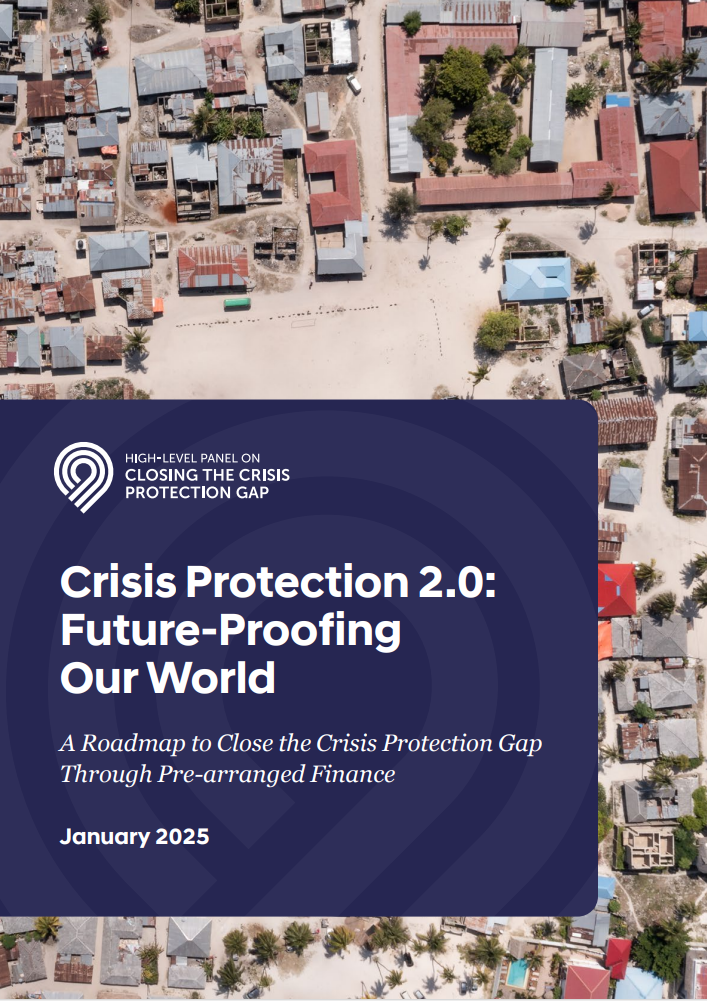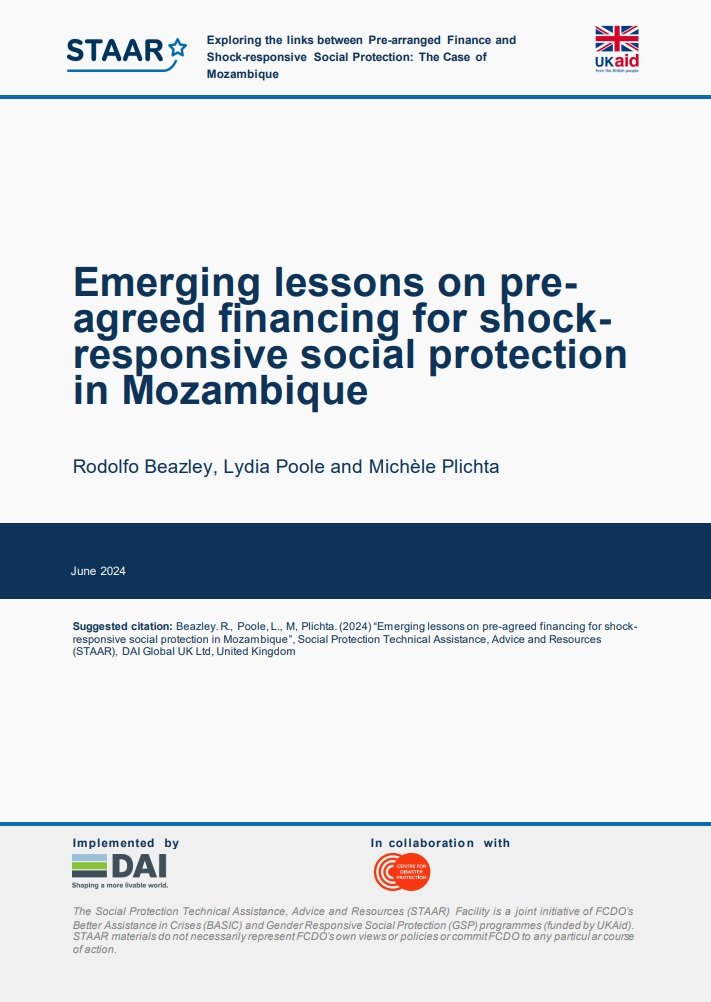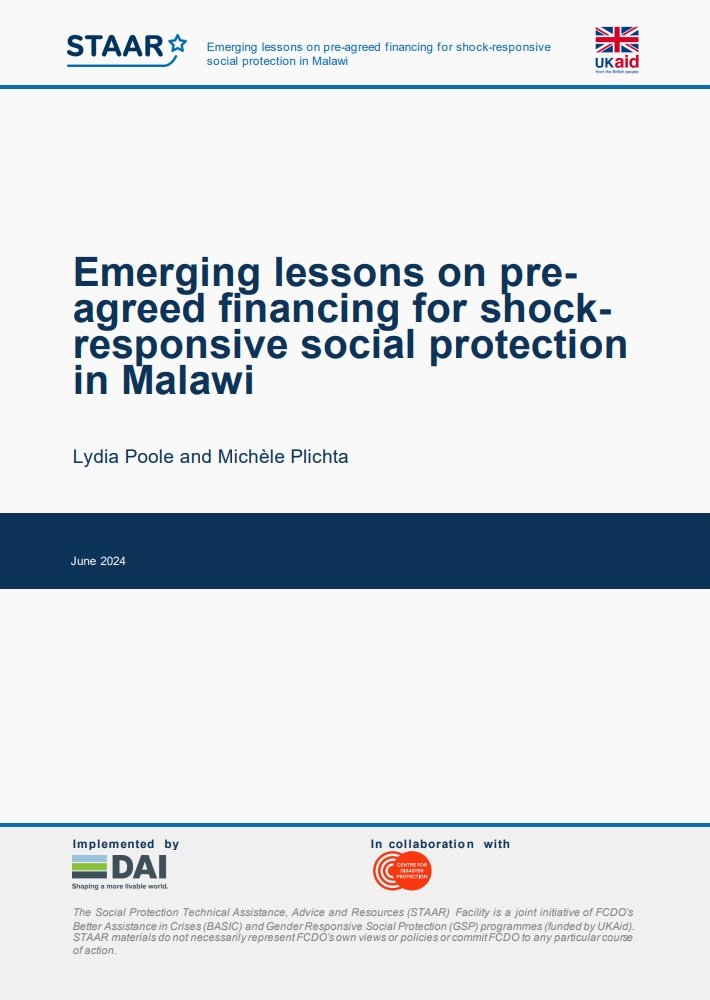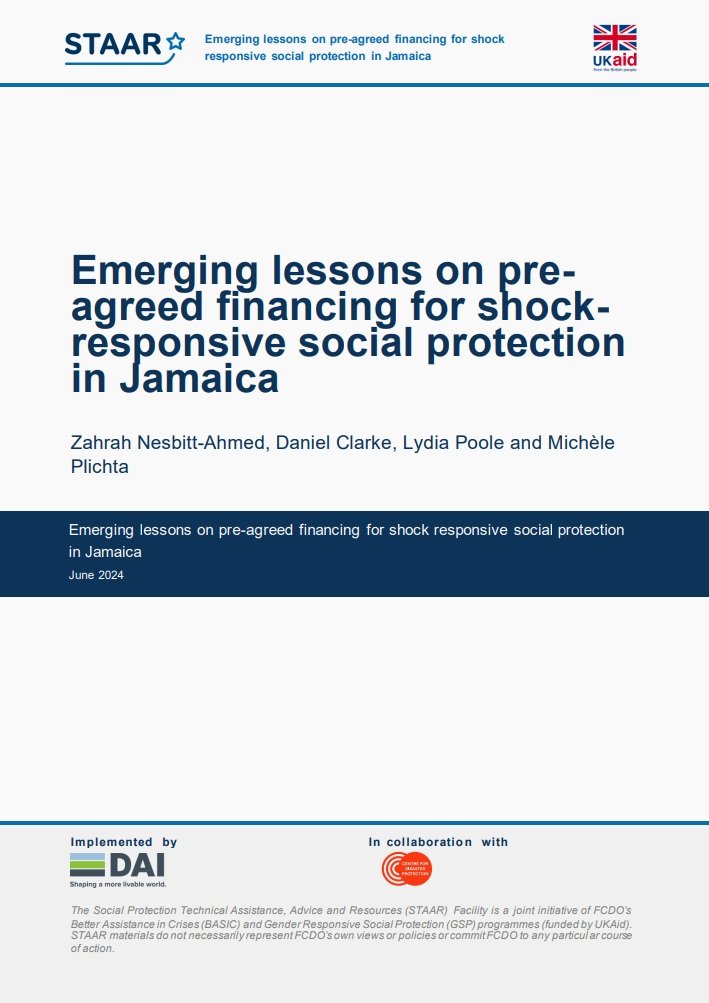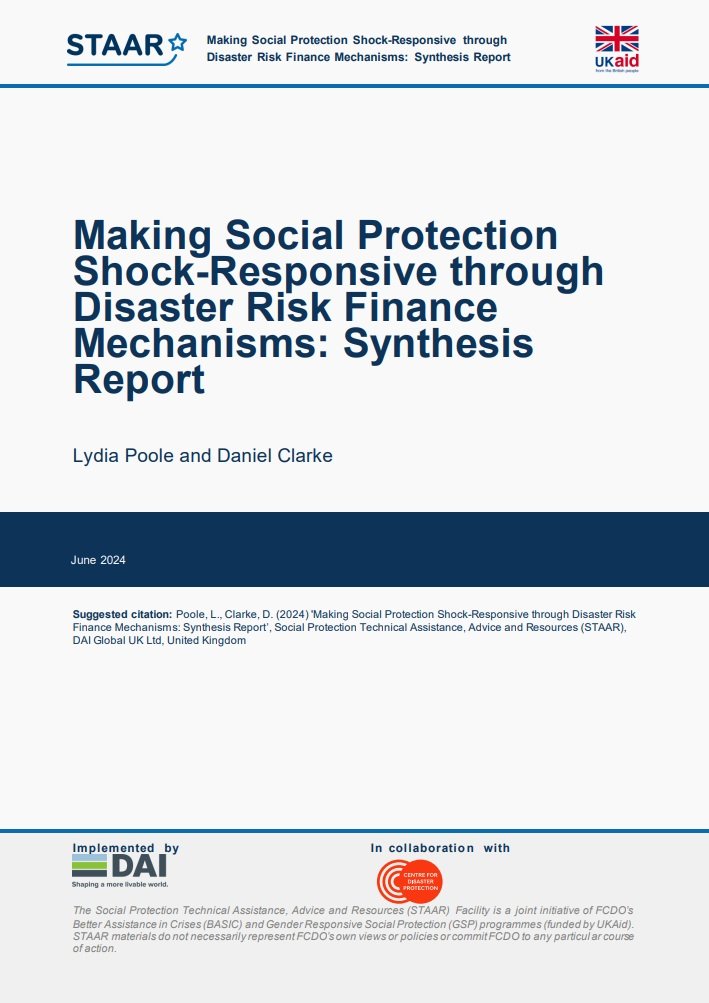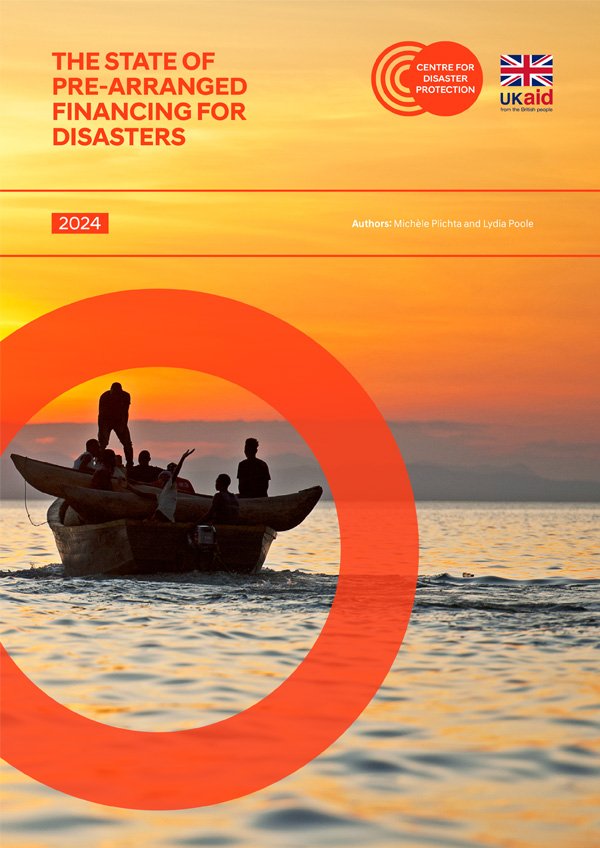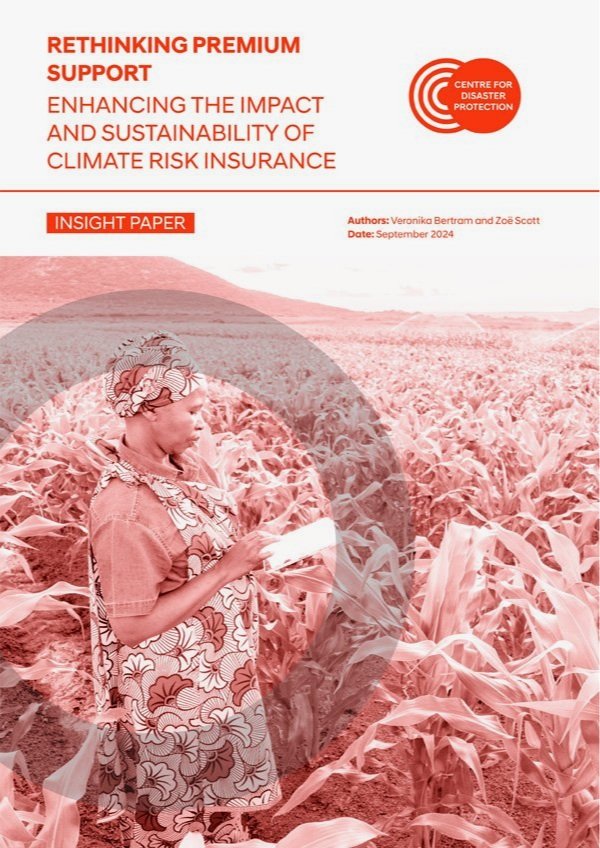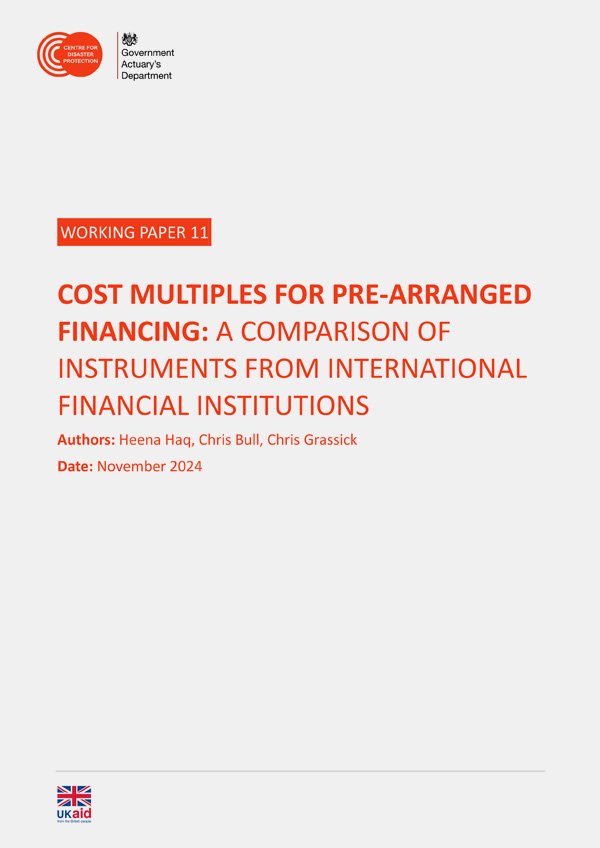
RESEARCH PROJECTS
Disaster Risk Finance Evidence Gap Assessment
The Centre reviewed the existing evidence on the welfare impacts of disaster risk finance. The review covers all interventions that help households finance their disaster response—from savings, micro-insurance and informal networks, to disaster funds and scalable social protection. We examined evidence on impact, as well as evidence on the 7 keys, pointing to evidence gaps, and highlighting key lessons from the existing evidence.
Evidence on the impact of pre-arranged disaster finance
The High-Level Panel on Closing the Crisis Protection Gap formed in January 2024, comprising 20 expert members from across sectors and geographies, united by the conviction that national and international crisis, climate and development financing architectures are at a critical juncture. This report delivers the High-Level Panel on Closing the Crisis Protection Gap’s call to action - that now is the time to comprehensively rethink how the world financially prepares itself for and responds to crises. The Crisis Protection 2.0 report outlines ten strategic recommendations and an ambitious roadmap for the next decade.
This study, conducted by the Centre for Disaster Protection in collaboration with the Social Protection Technical Assistance, Advice, and Resources (STAAR) Facility, investigates the potential opportunities, benefits and risks when linking disaster risk financing (DRF) and shock-responsive social protection (SRSP) in Malawi. The report contributes to a broader study that includes research across three country case studies (Jamaica, Malawi, and Mozambique) to consider the opportunities, potential risks, and benefits of channelling disaster risk financing instruments through national social protection systems. The focus of this report is Mozambique.
This study, conducted by the Centre for Disaster Protection in collaboration with the Social Protection Technical Assistance, Advice, and Resources (STAAR) Facility, investigates the potential opportunities, benefits and risks when linking disaster risk financing (DRF) and shock-responsive social protection (SRSP) in Malawi. The report contributes to a broader study that includes research across three country case studies (Jamaica, Malawi, and Mozambique) to consider the opportunities, potential risks, and benefits of channelling disaster risk financing instruments through national social protection systems. The focus of this report is Malawi.
This study, conducted by the Centre for Disaster Protection (hereafter, the Centre) in collaboration with the Social Protection Technical Assistance, Advice, and Resources (STAAR) Facility, investigates the potential opportunities, benefits and risks when linking disaster risk financing (DRF) and shock-responsive social protection (SRSP). The report contributes to a broader study that includes research across three country case studies (Jamaica, Malawi, and Mozambique) to consider the opportunities, potential risks, and benefits of channelling disaster risk financing instruments through national social protection systems. The focus of this report is Jamaica.
This study, conducted in collaboration with the Social Protection Technical Assistance, Advice, and Resources (STAAR) Facility, addresses gaps in evidence on the potential to integrate disaster risk finance (DRF) and social protection systems. The research includes three case studies – Jamaica, Malawi and Mozambique. The study puts forward six lessons and 12 recommendations for donors interested in supporting this agenda.
As the toolkit for pre-arranged financing expands, it is becoming increasingly challenging for governments to determine which instrument, or combination of instruments, best meets their needs. There is no silver bullet or single ‘best’ PAF instrument. To help governments and international partners better prepare for disasters, this report offers an in-depth assessment of pre-arranged financing tools using seven key criteria for ensuring pre-arranged financing reduces the human and financial costs of disasters.
The State of Pre-arranged Financing for Disasters 2024 is a unique source of data and analysis on the level of effort of international development donors to support a shift towards arranging financing for disasters, before shocks happen. In its second year, the Centre’s annual analysis of trends and patterns in international development financing for pre-arranged financing for disasters also presents the latest available data on coverage and payouts provided by these instruments.
This insight paper aims to support policymakers and practitioners as they seek to scale up financial protection against climate-related shocks through sovereign insurance solutions. It explores the complexities of international premium support and identifies core problems with current approaches to the allocation and design of premium subsidies. It proposes some basic but vital shifts needed in the way premium support is designed, allocated and provided to create a more inclusive, transparent and sustainable approach.
A strong body of evidence provides a compelling case that the current policy response to disasters—sudden, calamitous events that cause losses that exceed a community’s or society’s ability to cope using its own resources—is inadequate. This brief reviews the evidence on the welfare impacts of proactive approaches to setting up finance for disaster response.
This paper examines the evidence on how to prepare better for disasters, specifically the evidence on the welfare impacts of interventions that pre-arrange finance for disaster response. We find that the quality of evidence is mixed across this space.
Evidence on accountability in DRF
With growing fiscal constraints, governments and development partners face increasing pressure to maximise the impact of every dollar spent. To address this, the UK Government Actuary’s Department and the Centre for Disaster Protection developed an analytical framework to evaluate the cost-effectiveness of various instruments offered by international financial institutions. This working paper presents a framework that compares contingent loans, grants from multilateral development banks, catastrophe bonds, and insurance provided through regional risk pools. The analysis reveals that while some instruments are more cost-effective for frequent events, others perform better for less frequent, high-impact shocks.
Header photo: Marcos Villalta / Save the Children

